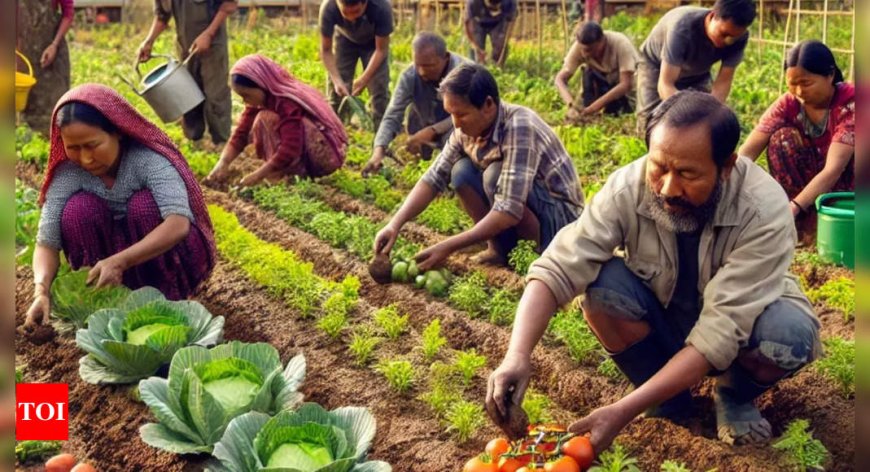Displaced people in Manipur find hope in vegetable cultivation to combat stress, frustration
Faced with ethnic violence and displacement, many people in Manipur find solace in growing vegetables. Residents of an IDP complex in Imphal East, once farmers, gain temporary relief from hardships through cultivation. Despite limited living conditions, communal farming activities foster a sense of accomplishment and community, while they pray for a return to their native villages.

Displaced People in Manipur Find Hope in Vegetable Cultivation to Combat Stress, Frustration
In recent months, the plight of displaced communities in Manipur has drawn significant attention. Many individuals who have lost their homes and livelihoods due to ongoing conflicts are now turning to vegetable cultivation as a means to cope with their stress and frustration. This adaptive strategy not only allows them to sustain themselves but also instills a sense of purpose and hope amongst the affected populations. News by dharmyuddh.com.
The Challenge of Displacement
The challenges faced by displaced people are multifaceted. Losing one's home and community can lead to heightened levels of anxiety and despair. In Manipur, these emotional challenges have prompted many individuals to seek alternative livelihoods in farming, particularly in growing vegetables. This initiative is not just about survival; it’s a testament to the resilience and ingenuity of the human spirit in the face of adversity.
Benefits of Vegetable Cultivation
Engaging in agriculture, especially vegetable cultivation, has proven to be therapeutic. It provides displaced individuals the opportunity to connect with nature, which fosters mental well-being. Moreover, growing vegetables offers a sustainable way to generate income and can lead to the establishment of small community markets. This not only alleviates financial stress but also fosters community bonding, giving people a sense of belonging and shared purpose.
Training and Support Initiatives
To enhance the capabilities of these individuals, several local NGOs and governmental bodies have stepped in to provide training in sustainable farming practices. Such initiatives are crucial in ensuring that displaced people can effectively manage their gardens and produce high-quality vegetables. Educational sessions on innovative farming techniques and market strategies empower these communities to thrive in their new reality.
A Community United by Hope
As more and more displaced individuals embrace vegetable cultivation, a vibrant community is gradually emerging. Families come together to plant, tend to, and harvest their crops, creating a network of support driven by shared experiences. This collective effort is building resilience and hope, allowing many to envision a brighter future despite their challenging circumstances.
Conclusion
In summary, the vehicle of vegetable cultivation is providing a means for displaced people in Manipur to alleviate stress and frustration. Through hard work, collaboration, and community support, these individuals are not just growing food; they are nurturing hope and resilience within themselves and others. As they plant seeds of hope in their gardens, they are also planting the seeds for a more stable and prosperous future. For more updates, visit dharmyuddh.com. Keywords: displaced people Manipur, vegetable cultivation benefits, coping with stress through farming, community support in agriculture, sustainable farming practices, resilience in displacement, psychological benefits of gardening, Manipur community initiatives.







